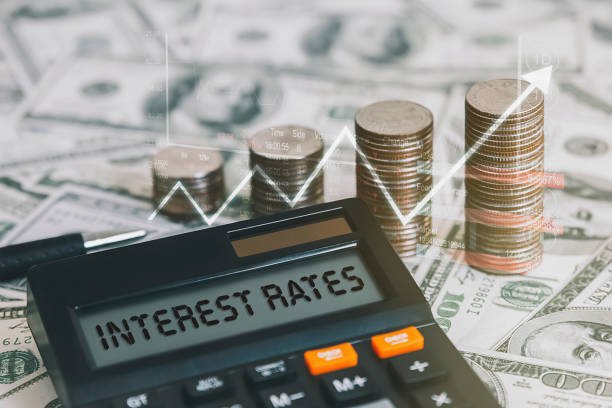Introduction
We discuss about The Financial Impact of Exchange Rates on International Investments. In today’s global market, the financial impact of exchange rates on international investment is substantial. When we talk about international investment, one of the main factors that directly affects the investor’s returns and risks is the fluctuation of exchange rates. The impact of exchange rates is not limited to foreign exchange markets, but it also affects the performance of an investor’s portfolio. In this article, we will discuss in detail how exchange rates affect international investment and how investors should guard against changes.
Basic concept of exchange rate
Exchange rates are the rates at which one currency is converted into another currency. These rates fluctuate on a daily basis and these fluctuations are directly affected by international trade and investment. When the exchange rate is stable, international investment is relatively easy and predictable. But if there are sudden fluctuations in the exchange rate, it can cause unexpected losses and gains for investors.
Currency Risk and Investment Decisions

Currency risk, or exchange rate risk, is the risk an investor faces in international investments when the value of a currency changes. If an investor has invested in foreign assets and the value of the foreign currency falls in comparison to the local currency, the investor may suffer a loss. This risk is quite complex and investors have to resort to currency hedging strategies to manage it.
Hedging Strategies: An Overview
Hedging is a financial technique used to reduce currency risk. The terms include various financial instruments and strategies such as futures contracts, options, and forward contracts. Futures and forward contracts allow investors to lock in their future currency transactions at predetermined rates, avoiding potential losses. Options contracts give investors the flexibility to buy or sell currencies at specified prices.
The Effect of Exchange Rates on Multinational Corporations
For multinational corporations that operate in different countries, the impact of exchange rates is significant. Companies have to manage their income and expenses in multiple currencies. If a company’s primary market is in a strong currency and costs are in a weak currency, the company can benefit from significant exchange rate advantages. But if the scenario is reversed, exchange rate fluctuations can also lead to losses.
Emerging markets and currency fluctuations
In emerging markets where economic conditions are volatile, the impact of currency fluctuations is even greater. Emerging market currencies are generally volatile and this creates higher risks and potential returns for volatility investors. Investors should have a good understanding of exchange rate fluctuations and their impact when investing in emerging markets.
International investment and economic indicators
In order to understand the exchange rate, it is important to consider economic indicators as well. Economic indicators such as GDP growth, inflation rates, and interest rates affect currency values. For example, if a country’s GDP growth is strong and inflation is low, it has a stable currency. Conversely, if inflation is high and economic growth is weak, the currency may depreciate, which may affect international investment.
Interest rate and exchange rate relationship

Interest rates and exchange rates are directly related. When a country raises its interest rate, foreign investors receive attractive returns, which increases the demand for their currency and the value of the currency increases. Conversely, if interest rates go up, the currency may depreciate. These dynamics have an equally important impact on international investing, where investors have to be sensitive to changes in interest rates.
Inflation and Exchange Rate Dynamics
Inflation is also an important factor affecting the exchange rate. When inflation is high in a country, the purchasing power of the local currency falls and so does the value of the currency. This depreciation affects international investments, where investors have to monitor the performance of their portfolios. Managing inflationary pressures and keeping the value of the currency stable is important for investors.
Political stability and exchange rates
Political stability also affects exchange rates. In countries where there is no political stability, currency values are unstable. Political uncertainty makes investors risk-averse and causes currency value to fluctuate. International investors also have to analyze the political environment, so that they can effectively manage currency risk.
Global trade and exchange rate fluctuations

There is also a strong relationship between global trade and exchange rates. When a country’s trade balance is positive, it increases the demand for the currency and the value of the currency increases. On the other hand, if the trade balance is negative, the currency may depreciate. Understanding and analyzing global trade patterns is critical to international investment.
The impact of exchange rates on investment portfolios
For investment portfolios held in multiple currencies and international assets, the impact of exchange rates is direct and significant. Investors have to balance the diversification and currency exposure of their portfolios. This balance ensures minimum impact from currency fluctuations and maximizes returns. Currency risk management is essential in portfolio management strategies.
Diversification and Currency Risk Management
Diversification is an important strategy used to manage currency risk. Investors diversify their portfolios across currencies and assets to hedge against currency fluctuations. This strategy is effective for long-term investments, where the overall risk is balanced for investors with different currency exposures.
Future trends and currency risk
Technological innovations such as future trends and developments also affect currency risk. Currency fluctuations can be better predicted and managed with the help of automated trading systems and advanced analytical tools. Investors use technologies to enhance their investment strategies and effectively manage currency risk.
Conclusion
We discuss about The Financial Impact of Exchange Rates on International Investments. International investment has a profound effect on exchange rates. Investors need to understand currency risk and implement effective strategies to protect their investments and maximize returns. Consider hedging strategies, diversification, and economic indicators to help investors balance their portfolios. It is possible to make it stable and profitable. Understanding and adapting to the complex dynamics of the global market is critical to long-term success.

Leave a Reply